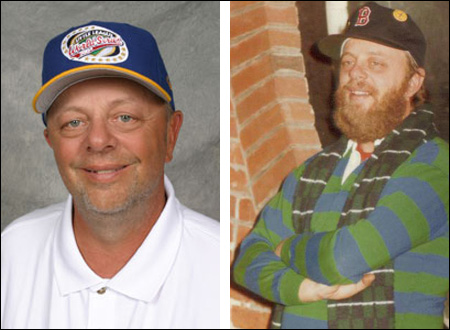In an unfathomably cruel twist of fate, longtime Living Room owner Randy Hien was killed in a car accident on Monday, September 25. Randy had been in recovery mode since February 2004, when a drunk driver hit his vehicle head-on (breaking both his legs and causing severe internal injuries). Randy forgave the man and urged leniency at his sentencing. That’s the kind of guy he was — positive in a spiritual sort of way, as if to say, “There’s good in everyone. You just have to look for it.”
Randy was getting around on a cane these days. He’d resumed coaching Little League baseball, which is what most folks in his hometown of Lincoln knew him for. At 57, he was devoting himself to his wife and children and work. Then tragedy struck again.
“Talk about shit luck,” said his friend Emerson Torrey. “We all know he’s had some bad luck, with the Living Room opening and closing and the accident. He’s had a rough go. But you could never tell that by talking to him. Then something like this happens and you really wonder why.”
Through four decades, Randy’s name has become virtually synonymous with the area’s local music scene. First on Westminster Street, where he booked many of the original wave of punk rock bands; then at the Big Bubble location on Promenade Street, where he helped indie, college, and alternative bands find their audiences; and finally at its current Rathbone Street location, which will continue under the guidance of his son Charlie.
Throughout his time on the music scene, Randy affected everyone — artists and staff, regulars and strangers alike — with his upbeat sincerity, insight, and ceaseless encouragement. The club scene has lost a true giant. On these pages is a collection of remembrances, anecdotes, and heartfelt farewells.
 |
I CAN REMEMBER RANDY’S SPIRIT. Randy would tell me how he wanted to save the world. He’d get all welled up and emotional about it. One of the reasons he booked the Schemers at his club (he told me) was because we volunteered to go on first at a benefit for a local band that had their equipment stolen. He appreciated when people put their egos aside. He was a coach for the bands as well as the Little League teams he led. After he got in the terrible car accident a few years ago, he really showed us what he was made of when he was so forgiving of the person who hit him. He seemed to have a serenity about him from day one. He had a great laugh and wonderful cadence in his voice when he delivered one of his uplifting speeches. I feel really sorry for his family and for all the kids he’s coached. He’s left a big footprint on the world. Randy was a heroic kind of guy. He was walking love.I remember a little story.
Back in the early ’80s there was a critic who seemed to have a visceral dislike for the Schemers in general and me in particular. I guess you could say he and I had a feud going. One night at one of the thousands of benefits that the Living Room hosted, the writer was there and so was I (I was at the Living Room six out of seven nights anyway). We saw each other and tried really hard to stay out of each other’s way. Randy took us both aside and said something like, “Mark, this is Al. Al, this is Mark. I like both of you guys and I think you should hug each other.” Randy forced us to hug each other. What could we do? We all laughed and hugged. Feud dissolved because of Randy Hien. Since then we’ve been good friends. Randy had a Buddhist thing about him. He had a peace that most of us only see glimpses of.
_Mark Cutler
BACK IN 1975 OR SO, RANDY AND I were sitting at the bar of the Living Room. Lupo’s was open for a week and the Living Room was already open, but not too long, and we looked at each other, and said, “What the hell are we getting into?” There was the idea that, even as competitors, we could always talk to each other work everything out. I realized immediately what a kind soul he was. He was guided by a different kind of spiritual power than other businessmen. We were out-and-out competitors for 15 years and of course we had our tiffs, but we always knew that it was never personal. Some of the bands sensed that he was very soulful and they were really drawn to him. Over the years, there were five times that I said to him, “I don’t know if I can do this anymore.” And he always responded, “It’s in your blood, don’t fight it.” He didn’t have to say that. He was my competitor. If I stepped aside he would have made a lot of money. But it wasn’t about the money. He didn’t want that for himself, the scene or for Providence.
_Rich Lupo